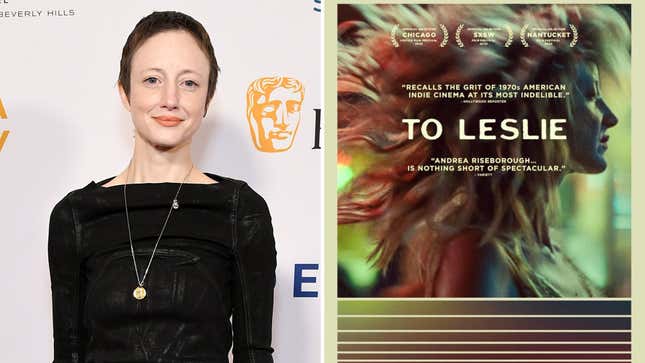How Andrea Riseborough’s Oscars Campaign Got So Messy
Riseborough received a seemingly out-of-nowhere Best Actress nom for To Leslie.But the director's wife nearly violated Academy campaign guidelines.
EntertainmentMovies

Have you or someone you love been targeted by a groundswell email marketing campaign to nominate Andrea Riseborough’s performance in To Leslie for an Oscar? If so, you might be a part of a formal investigation by the Academy. On Tuesday, the organization met to determine if the push behind Riseborough’s nomination violated their guidelines. They officially decided they won’t be rescinding her nomination, but they did “discover social media and outreach campaigning tactics that caused concern.” In the meantime, some of Hollywood’s biggest names are finally recognizing their industry’s implicitness in elitism. The horror!
Following Riseborough’s seemingly out-of-nowhere nomination for Best Actress, Vanity Fair revealed on Tuesday that Mary McCormack, wife of To Leslie director Michael Morris, sent numerous emails to Hollywood insiders—including some Academy members—praising the film, Riseborough’s performance, and encouraging them to watch. That, in and of itself, might be somewhat unusual—that sort of campaigning is often left to PR folks—but it didn’t breach nomination guidelines. From there, a gaggle of A-list celebrities, including Jennifer Aniston, Ed Norton, Kate Winslet, and Charlize Theron, all sang praise for Riseborough’s performance.
However, McCormack followed up with another email: “Please watch it, and if you respond to it, then join us at a very intimate reception on January 11th at our home,” Vanity Fair reports. “Come have a drink and chat with director Michael Morris, lead actress Andrea Riseborough, and Allison [Janney], and me, and fellow actors. We can have only about 25-30 people, so it will be small.” The Academy guidelines state that prior to nominations “members may not be invited to, and members may not attend, any dinners, lunches or other such events that are intended to promote an eligible film for awards consideration.” But since McCormack, who is an actor herself, isn’t officially associated with the film, it toed the line of ethics.
-

-

-

-

-

-

-

-

-

-

-

-

-

-

-

-

-

-

-

-

-

-

-

-

-

-

-

-

-

-

-

-

-

-

-

-

-

-

-

-








































